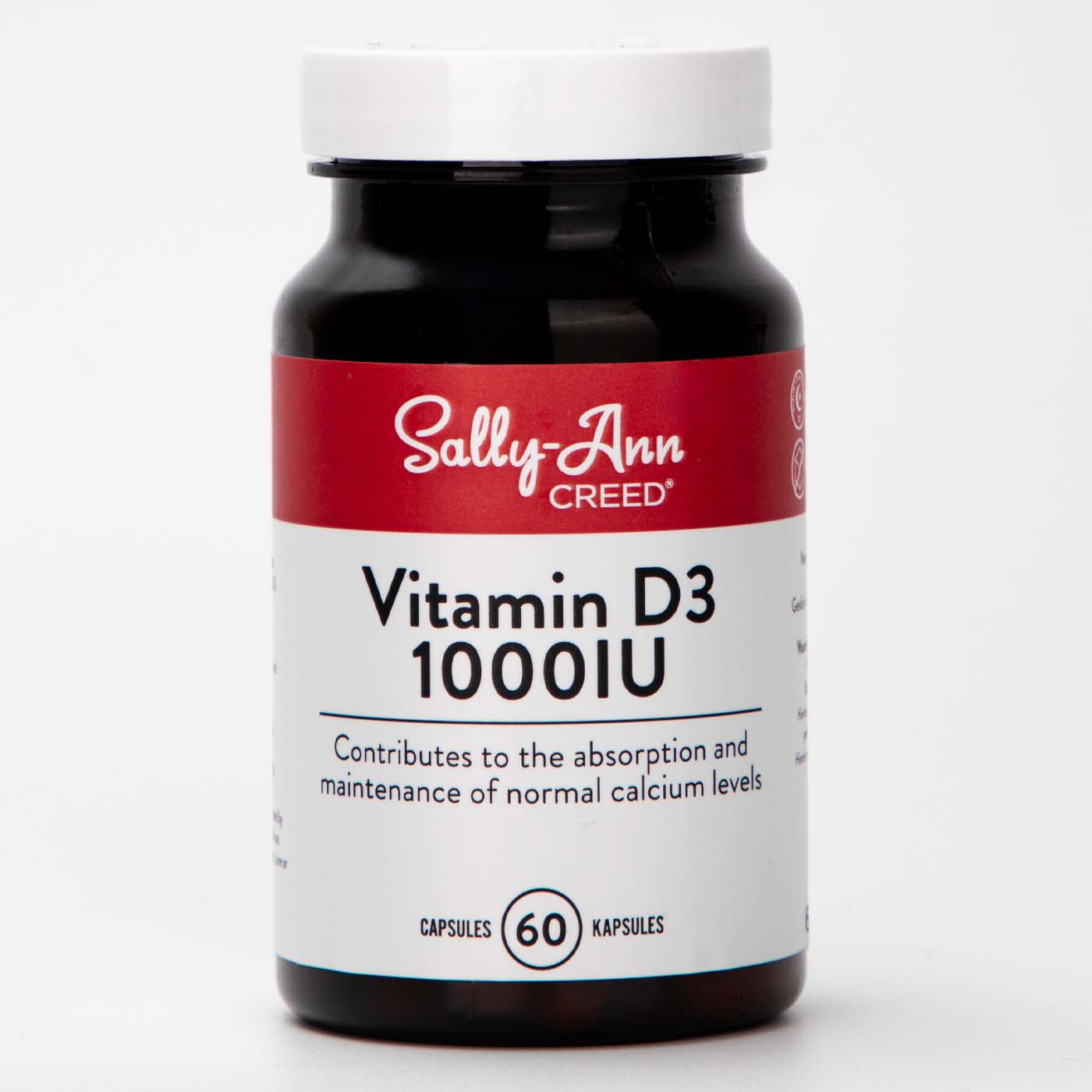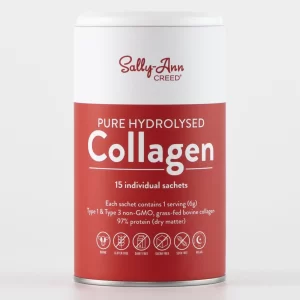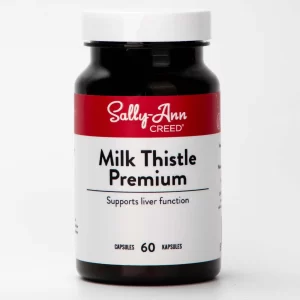Description
Vitamin D3 contributes to the absorption and maintenance of normal calcium levels, and may reduce the risk of developing osteoporosis. Vitamin D has also been shown to reduce inflammation and improve immunity.
Benefits may include:
- Helps in the absorption and use of calcium and phosphorous
- Contributes to normal blood calcium levels
- Contributes to the development and maintenance of strong bones and teeth
- Contributes to the normal function of the immune system
- Contributes to the maintenance of normal muscle function
Description
Vitamin D3 is in fact a hormone from the same family of steroid hormones as estrogen, progesterone, testosterone, and cortisol. This means that, like these other hormones, vitamin D regulates gene expression in the nucleus of a cell. It does not just have a seat on the front row in regulating our biochemistry, it is conducting the orchestra!
It was thought that we could get quite a lot of vitamin D from the sun and milk, but both are proving to be less than effective for our needs, as more of the worldâs population appear to be dismally deficient in this vital nutrient. We can thank sunscreen for this to a large degree, as it blocks the beneficial rays which turn our cholesterol in the skin into valuable vitamin D3.
The National Health and Nutrition Examination Survey III conducted by the Centre for Disease Control shows a relationship between vitamin D deficiency and obesity, hypertension and diabetes in adults. It is also common knowledge that vitamin D is important for calcium absorption and strong bones and teeth. Vitamin D also slows cell growth (in malignant tumours), and vitamin D is being used in cancer treatment in many centres around the world.
There is evidence that atrial fibrillation is linked to low vitamin D levels.
The evidence is overwhelming that vitamin D plays a vital role in breast and other cancer prevention. Vitamin D has also been found to be highly beneficial in preventing heart disease â there are so many benefits!
Receptors that respond to vitamin D have been found in almost every human cell ranging from brain to bones and researchers are finding health benefits of vitamin D in every area they look.
Unfortunately not that many foods contain vitamin D. Some fish such as salmon, tuna and mackerel, as well as fish liver oils are considered to be the best sources, but vitamin D is also present in beef liver, cheese and egg yolks. Vitamin D is perhaps best taken in a variety of these foods, limited sunlight and wise supplementation.
Composition:
Each capsule contains:
Vitamin D3    1000IU  25mcg   125%NRV
(Cholecalciferol)
Dosage and directions for use:
Take 1 capsule daily at mealtimes, or as directed by your healthcare provider.
Do not exceed the recommended dosage
Â
Free from:Â Gluten, dairy, soya and sugar
This product is Halaal and Kosher friendly.
Warnings and special precautions:
Do not use this product if you are allergic to any of the ingredients
Contact your doctor or health care provider right away if this applies to you.
Safety in pregnancy has not been established
Supplements should not replace a balanced diet.




